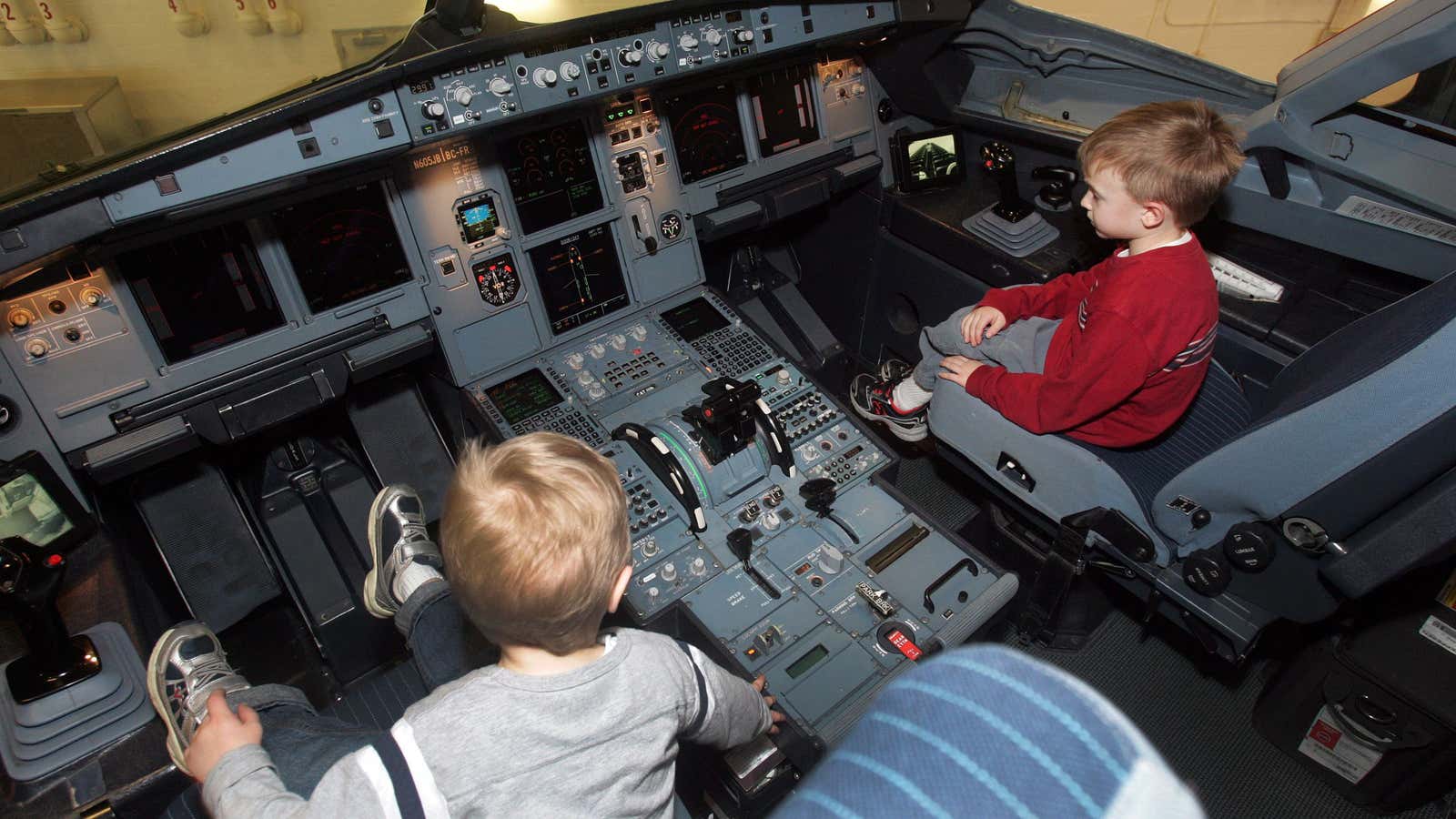Airlines around the world will open their cabin doors this year to a record 3.78 billion passengers (pdf). Whether cockpits will be full is another question.
A brewing shortage of pilots is among airlines’ biggest challenges. It’s the product of longer and more expensive training requirements, paltry starting salaries, and an impending wave of mandatory retirement of many current captains.
A recent study by the University of North Dakota’s aviation department projected there will be 15,000 fewer pilots in the US than needed by 2026. The US regional carrier Republic Airways, which provided services on routes offered by Delta, American, and others, already cited the pilot shortage when it filed for bankruptcy earlier this year.
Boeing projects that more than 40% of demand for new pilots (pdf) will come from the fast-growing Asia-Pacific region. So airlines and manufacturers are going the offensive. Europe’s Airbus and Singapore Airlines teamed up to open a new pilot-training academy in Singapore in April, which can teach 10,000 trainees a year. It is Airbus’s second school in Asia, following one in Beijing.
In many places, it has become more difficult to become a pilot, often with reason. The focus on pilot training and health over aircraft safety has become more intense in recent years in the wake of several crashes, especially the infamous March 2015 intentional crash of a Germanwings flight in the French Alps brought about by a depressed pilot.
For its part, the US government raised a minimum requirement for first officers to be hired by commercial airlines six times—currently to 1,500 hours—following a February 2009 deadly crash of a regional carrier’s plane in New York state due to pilot error.
And if the requirements weren’t a deterrent to future candidates, there’s also the low salary. The starting salary is about $20,000 a year, according to the Air Line Pilots Association, International. (Though captains at major airlines earn around $135,000.)
Some airlines have already started offering candidates signing bonuses to get new pilots through the door. While it’s unclear whether that’s enough to drum up more interest in the career path, what is likely is higher salary costs will get passed along to someone. (Hint: It’s you).




